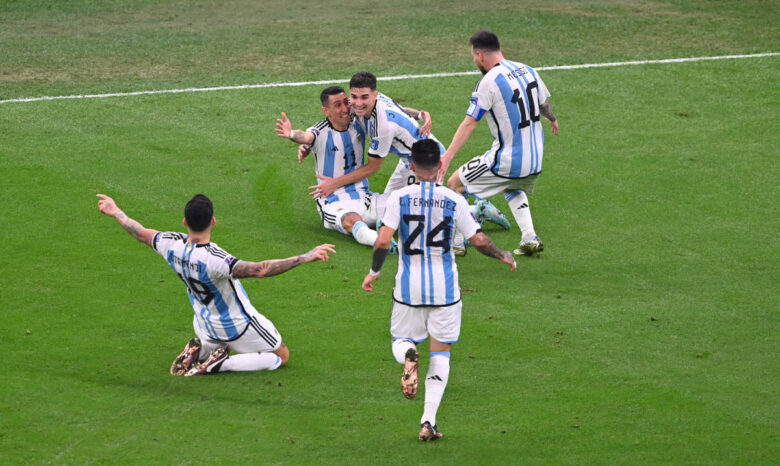But it bucked trend toward conservative soccer strategy
By Claude Iosso
It was the World Cup final many of us wanted, and yet the experts feared it might be a cagey, even dull affair based on the trends. Instead, Argentina’s victory over France was so exciting, it’s been immediately recognized as the best final ever, with the sport’s biggest stars, Lionel Messi and Kylian Mbappe, each putting on a show. The match featured bold attacks, multiple momentum swings and six goals, all capped by the nail-biting drama of a penalty shootout. However, given the widespread shift toward conservative game plans in soccer, will this exceptional game prove to be the exception?
Over two weeks on the tiny nation of Qatar, few of the 32 national teams played attacking football, preferring to cede possession if they could, then nick a goal on a counterattack. This pragmatic approach rests on the premise that the less you have the ball, the fewer mistakes you make. The strategy worked astonishingly well for many teams, evening the playing field. Minnows including Saudi Arabia, Japan and South Korea were able to expose big boys like Argentina, Germany and Spain on the break.
As you might expect, the strategy also slowed the flow of goals. A record eight opening games for the respective groups ended in 0-0 draws. The other semifinalists in the World Cup – Croatia and Morocco – went far in the tournament because they excelled at the penalty shootout, a frequent result when teams only really tried to score when they were down. You don’t need world-class players if you play disciplined defense and have 80% of the stadium backing you fervently as Morocco, the tourney Cinderella, proved.
Despite the success of the conservative approach, the managers of some of the power teams faced heavy criticism from their fan bases. Portugal, the Netherlands and even France drew heat for failing to play the expansive football with which they each have made a name for themselves.
Didier Deschamps has been one of the most successful managers on the international stage ever, guiding France to a World Cup win in 2018 and the European championship final in 2016 before leading a injury-depleted squad to this year’s final. But French fans still grumbled. Even without lethal striker Karim Benzema, playmaker Paul Pogba and tireless holding midfielder Ngolo Kante, France boasted one of the most fearsome attacks at the tournament. Striker Olivier Giroud was a potent target man near the goal, Antoine Griezmann dropped back from forward to take Pogba’s spot and engineer quick strikes and Mbappe, who stormed the 2018 Cup at age 19, was easily the most fearsome player at this edition. But Deschamps kept a tight leash on his thoroughbreds, content to let even Morocco hog the ball.
And it almost worked.
Lionel Scaloni, the wild card Argentine manager, decided not to be shy with the ball. Messi, a peerless wonder with Barcelona for so many years, was matching that form in the sky-blue and white stripes at this tournament. After Scaloni pulled Enzo Fernández and Julián Álvarez from the bench during the second game of the tournament, Argentine was performing better with every game. Scaloni put the pedal to the metal, the Albaceleste driving forward relentlessly, pressing high to take the ball back the few times the French could get a whiff of it. Before the halftime whistle, Messi had buried a penalty and ageless greyhound Angel DiMaria had banged one in from a scintillating sequence of passes kicked off, of course, by Messi.
The Argentine domination was so comprehensive, Deschamps pulled Giroud before the half was over and withdrew Griezmann not long into the second half. But as they had throughout the tournament, Argentina coughed up the lead. First a spot kick for Mbappe, then a volley from him into the goal 90 seconds later. Messi responded with a goal, but Mbappe’s marauding resulted in an equalizer from the spot.
Again, as in other games, Argentina got back off the canvas and pressed France in overtime before ultimately dispatching them 4-2 on penalties. No Argentine missed. Argentine goalie Emiliano Martinez saved one too.
So what will be the lesson national teams take from this World Cup? Argentina won and they deserved to win, but it took everything they had – from Messi’s otherworldly finishing to a remarkable kick save and penalty stops from Martinez. France, on the other hand, never even gets in the game without the most dangerous forward in this world.



